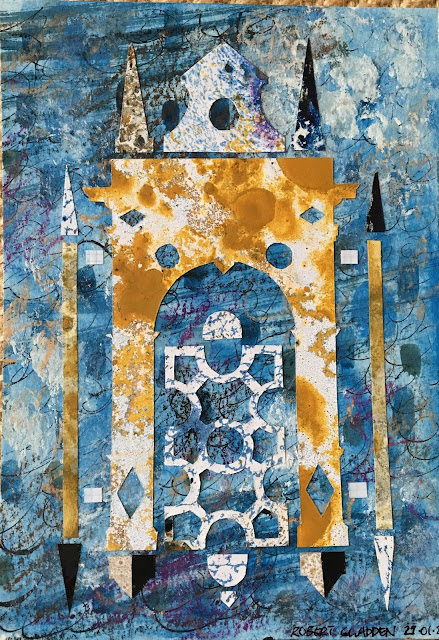I suppose you could call this an example of British Transport Films heroic approach to documentary film making. Not that it was in anyway as objective as the term 'documentary film' might imply. 'Blue Pullman', 1960, had a job to do: sell a new, fast and luxurious British Rail service that linked the cities of the industrial North and Midlands to London. Questions always arise with a film such as this: what is the balance between reality and fiction? What is real and what is staged? Are they real staff/passengers or actors? However the lack of objectiveness is no barrier, thankfully, when it comes to aesthetics, or nostalgia. It is a film I take a lot of delight in.
There is no spoken narration, the cinematography by David Watkin & Jack West and the score, by Clifton Parker (who also composed the score for that wonderous film 'Elizabethan Express'), do all the work. And an excellent job they do of it. The audience follows the establishment of this new service through from the testing of the first train to that inaugural journey of the 'Midland Pullman' service from the now closed Manchester Central to London St Pancras. A film concerned with materiality (is that a word? - if it is, like heteronormality, it is an awkward, ungainly thing) for we see nothing of the design process. From a mysterious beginning - are we about to find a dead body in the buffet car? Well, the body of an engineer busy at work - we reach a triumphant conclusion in beneath the gothic engine shed at St Pancras. The influence of 'Elizabethan Express' made only six years before is obvious. Though, I suppose, there is only a limited way you can film a train.
It is instructive to see, in all these BTF films, how the aesthetics of totalitarian cinematography got re-used in a liberal, social-democratic-leaning democracy, and there I suppose lies the almost inherent contradiction, for do you convincingly create the heroic out of the mundane life of post-War Britain? Another way, and one I think Blue Pullman attempts, is to employ wartime commonality. All classes pulling together for the good of the whole. That sort of thing. But I can't image that to be an easy thing to do, and eventually it became a narrative, attractive though it is at this distance, that could no long cut it. Society was changing, and the speed of that change was only to increase as the decade continued. That Wartime narrative along with that of progress itself came under increasing criticism and rejection. In the specific case of 'Blue Pullman' the issue, surely, was the gap between the cinematic rhetoric and the daily experience of, say, a commuter in the south-east travelling in over-crowded and dilapidated rolling-stock. The film itself fell victim to this when filming was temporarily abandoned after British Rail postponed the launch date of the new service by a good six months from January 1960 to July following problems with the new rolling stock. Sadly, the Blue Pullman service was not a success. The Midland service was withdrawn in 1966, though the rolling stock continued in use until 1973
(02.03.2025) Independent auteur, David Gladwell, was production assistant. Gladwell is best known, perhaps, for his 1973 film, 'Requiem for a Village'.
Blue Pulman
1960
Cinematogrpahy David Watkin, Jack West
Producer Edgar Anstey

